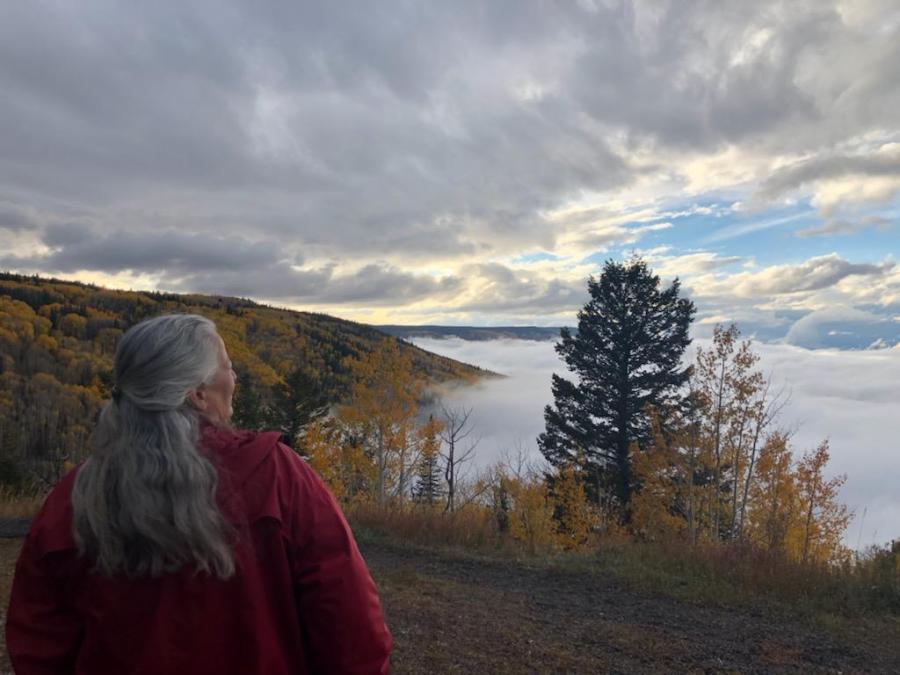
In 1975, the Mashpee Wampanoag in the town of Mashpee on Cape Cod first approached the government about becoming eligible for federal acknowledgement as an Indian tribe. Since then we have watched many sunsets and sunrises with hopes of hearing something positive. In 1994 at the Mashpee Wampanoag annual Pow Wow, more than 1,000 tribal members gathered for three days to spend time with their families and friends, sharing their stories. Russell M. Peters, Sr., then tribal president, voiced the feelings of many tribe members when he said, “We have been striving very hard to retain our identity. Ever since the English landed at Plymouth Rock, we have lived on the same territory, and we intend to live here forever. I feel very optimistic we will achieve this goal of recognition.”
Having served three terms as tribal president and tribal historian myself, I know that many Mashpee Wampanoags and their allies and friends shared Russell's optimism. Finally, on March 31, 2006, we found it vindicated. The Office of the Assistant Secretary of Indian Affairs phoned the Mashpee Wampanoag tribal council around 4 p.m. informing us of the preliminary determination of tribal status, that we exist as an Indian tribe by federal law. That day, our chief, Silent Drum Vernon (Bunny) Lopez said, “Our freedom has been a long time coming. This supports what we have been saying all along: that we are the Mashpee Wampanoag. The advantages will be for our children.” Tribal members were elated, of course, but at the same time we remembered the passing of too many ancestors who worked endless hours for recognition, including Russell Peters Sr. and Chief Sly Fox.

We asked Ramona Peters, the newest memeber of Cultural Survival's Program Council and a Mashpee Wampanoag, to reflect on the challenges and oppotunities presented by federal recognition. Here are some of her comments.
Was there unity among the tribe about the value of recognition?
Yes, I would say there was. People were on board for one of two reasons: so that we could pursue rescuing the land—because without recognition we couldn’t—or they wanted the casino. For people around here the scary thing is the question, “Are you guys going to go after the land again?” Everybody is asking that question. Everybody who moved here after our land suit was required to get Indian land-claim insurance. [The Mashpee Wampanoags filed a suit in 1976 to reclaim their ancestral tribal land, but questionable legal representation and an unsympathetic court doomed the effort.] The banks required the insurance because they know developers don’t have clear claim to the land here. It’s been like a big gambling situation—high rollers who have the money to risk, willing to bet that we would never get any rights, we’d never get any power to enforce he law, we would never get any money to have lawyers that would enforce the law. All of these gambles are at risk because of federal recognition.
How does that affect relations between the tribe and local people?
For the most part there are no substantial relationships between us and the people who moved here. They don’t talk to us, they don’t associate with us. There’s little or no intermarriage. They’re just here. The local whites mostly behave as if they resent us, as though they are thinking, “What are you still doing here?” They call the police if we walk down to the waterfront near their homes. The tideline is the line of ownership, but they don’t want us even in the tideline, fishing or getting quahogs [a kind of shellfish] or whatever. These aren’t Yankees. These are people from other cities and towns who moved here. I do hope we can communicate now that our identity issue has been resolved.
Has the prospect of a casino been a divisive issue?
No. But it has been the total focus of the present tribal administration. Economics is only one of the necessary functions of government, but people just don’t see that. They’re not thinking about things like the land or even getting the Human Rights Commission in here. Traditional thinking requires that we protect the land for future generations. The present tribal council leadership gave up any quest for land.
A lot of people have questions about what the recognition means. I think a lot of people thought we were going to get showered with money and may be looking for their share. We’re a bit different from other tribes. Because we’ve been independent and lived in family groups taking care of ourselves, we are together culturally, but politically and financially we’ve not ever depended on each other, not for ages. Most other tribes are completely dependent on the federal government and their own local government to disburse the funds or give out the jobs and things like that. But this is not our history. Many of our people don’t have a clue about what being a federal tribe is about, how they function. We do need some of the advantages, like health care and putting our kids in school. I don’t think people know what federal recognition status means, that the laws that protect other tribes will now protect us as well, our sacred sites. We’ll now be able to clean up our bays with EPA money. We, however, will have to write the proposals and use the laws that other tribes have at their disposal.
While the heartbeat of the drum continued that day, other Wampanoags shared their points of view about this new history-making event. Here are some of their comments:
Cherilyn Frye Peters: “For me and my family recognition stands for education, health care, and housing.”
Norman “Joey” Dias, age 18: “For me recognition means control of some land. We will have sovereign aboriginal rights.”
Marcus Hendricks, age 22: “When I was growing up, I listened to my uncles talk about what they could do when they were young. Now there's more private land, so I could not go fishing and hunting like them. It was made harder for me to keep my traditions alive and follow my aboriginal rights. As for federal recognition, I would like to see the town leaders and non-natives respect our traditional values and way of life. I expect my tribe to fulfill the needs of elders and help with sobriety for our youth.”
Yvonne Peters Avant, Council Member: “I hope the press remembers that this is not all about casinos. This is about what we worked for 30 years. It's who we are.”
Milton “Mickey” Frye, age 84: “I've been wishing this for many years. I didn't think I would ever witness this, but it's finally come to pass. I feel my grandchildren will be taken care of. Now I can go to my grave and rest in peace.”
Yes, we are now considered an Indian tribe according to federal law. Now non-natives will know that we really are who have said we are all along. It has not been easy to maintain our tribal sovereignty and follow our traditions without a struggle. We have collided with colonization, assimilation, puritan laws, policies, public schooling limitations, and building development. But through the spirit and wisdom of our native leaders and elders, and living on our original homeland telling the stories, sharing instruction and values, we have retained our identity.
Now we need to concentrate on the labors needed for a final decision from the Department of the Interior a year from now, after a period for questions and comments from the town. A lot of people, especially in Mashpee, have questions about land and people’s homes. They want to know if there will be another land suit and whether we are planning to build a casino on Cape Cod. Glen Marshall, tribal president, has made it very clear: “Nobody’s home or land is going to be taken,” he said. “Those decisions will be worked out between the town of Mashpee, the state of Massachusetts, and federal governments.” Chief Lopez says with certainty that, ‘“There will be no gambling on Cape Cod. For one thing, it wouldn’t pay. Traffic alone would prevent it. The land suit is over and done with.”
Once federal recognition is finalized, we hope not to lose any more than what we have lost over the past centuries. Our main goals are housing, education, and health care for our 1,478 tribe members.
Joan Tavares Avant writes for the Mashpee Enterprise and is a former tribal president.
For more information, go to the Mashpee Wampanoag Tribal Council web site at www.mashpeewampanoagtribe.com.



